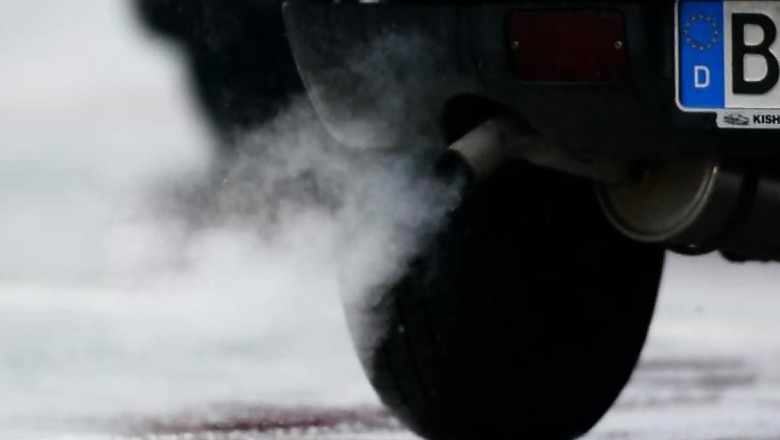
views
Germany will set up a new organisation to test vehicle emissions to try to restore consumer confidence after Volkswagen's emissions scandal revealed an industry-wide pollution problem, the transport ministry said.
The ministry said the new institute would involve consumer organisations, local governments and environmental groups, as well as the auto industry and ministries, to ensure "more transparency and reliability" in vehicle tests.
However, the KBA motor vehicle authority, which reports to the transport ministry and currently oversees vehicle testing, will remain responsible for licensing new models.
Since Volkswagen admitted to cheating U.S. diesel emissions tests in September 2015, the German government has come under fire for not doing enough to crack down on vehicle pollution and for being too close to the country's powerful car industry.
The ministry said the new institute would test about 70 car models a year using realistic driving scenarios, rather than relying solely on laboratory conditions, and the emissions and fuel consumption results would be made public to allow car buyers to make better comparisons.
It noted that current official tests do not take into account factors such as the use of air conditioning and radio, or the weather or style of driving, which all influence fuel consumption.
Germany's VDA auto industry association said in a statement its members were keen to give customers more information about variance in fuel efficiency and would fully participate in the new institute in the interests of more transparency.
SECTOR UNDER PRESSURE
On Monday, Reuters reported the transport ministry was pushing carmakers to update the engine management software to cut pollution in up to 12 million diesel vehicles in the country, citing people familiar with the talks.
HSBC analysts said estimates for the cost of retrofitting cars vary widely but could reach as much as 10 billion euros.
"The theme remains highly relevant and creates uncertainty that we believe contributes to the ongoing de-rating of the sector," they wrote in a note, referring to pressure on carmakers' shares.
Volkswagen's 2015 admission that it used software to cheat U.S. diesel emission tests highlighted the laxness of the European Union's own tests, which are currently organised on a national rather than a pan-European level.
The European Commission is seeking broader supervisory powers, including the ability to impose fines on carmakers, but Germany is lobbying to keep vehicle testing and licensing a national affair.
In the aftermath of the Volkswagen scandal, the German transport ministry ordered tests on the carbon dioxide emissions of 29 models. On Tuesday, it said 17 passed the test, while 10 models still needed to be tested in the coming months.
However, some versions of an Opel Zafira car and a Smart For Two produced by Daimler produced more carbon dioxide than they should, although the Smart model still needed to undergo further tests. Both versions of the models in question are now discontinued.
Zafira diesels already on the road will have to undergo a software update, the ministry said, although the licences for both vehicles will not be withdrawn.
Opel said the Zafira had passed all legal tests, noting fewer than 3,800 of the model in question had been sold in Germany.
European governments have promoted diesel cars as part of efforts to fight climate change as they produce less carbon dioxide than petrol cars, although environmental groups have cast doubt over how much less they produce and have focused instead on the levels of toxic nitrogen oxides they emit.


















Comments
0 comment